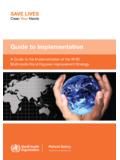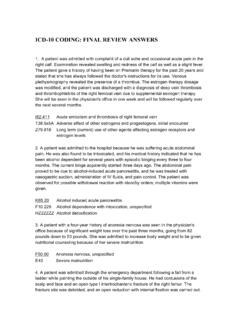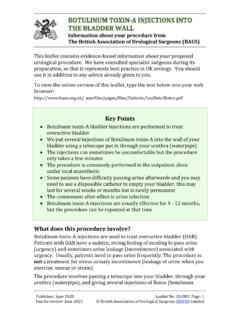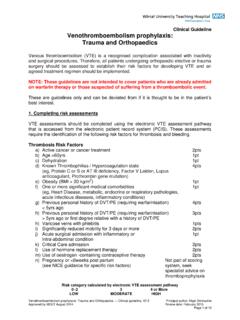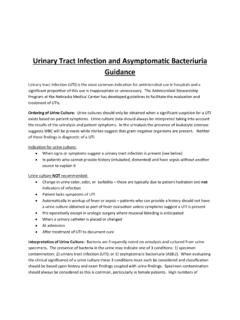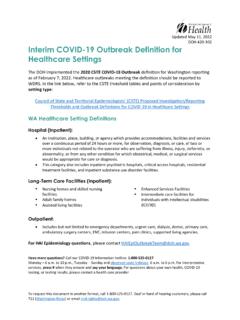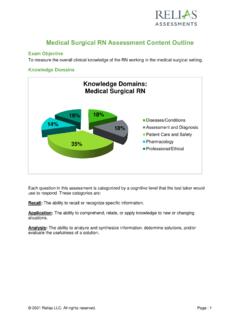Hospital Acquired Conditions Present On Admission
Found 9 free book(s)Medicare Non-Payment of Hospital-Acquired Infections ...
www.cms.govthese conditions, as well as a POA indicator to determine whether the condition was hospital-acquired, which is defined as a condition not present upon admission, but that presents after 48 hours in the hospital (ECRI Institute Special Advisory, 2008). For each discharge in …
Guide to Implementation
www.who.intof care in a hospital or other health-care facility which was not present or incubating at the time of admission. This includes infections acquired in the hospital but appearing after discharge, and also occupational infections among staff of the facility.
How to Conduct a Medical Record Review - NCHA
www.ncha.orgHospital-acquired conditions (HAC) Mortality risk: Observed vs. expected metrics Specific populations (by payer, service line, primary diagnosis, mortalities) Today, CDI has evolved. It’s no longer focused solely on MS-DRGs, but takes a holistic view of all aspects of patient comorbidities, including the impact on reporting of quality measures
ICD-10 CODING: FINAL REVIEW ANSWERS - CareerStep
training.careerstep.comA patient was admitted to the hospital because he was suffering acute abdominal pain. He was also found to be intoxicated, and his medical history indicated that he has ... Z90.12 Acquired absence of left breast and nipple ... Both conditions improved, and the patient was discharged to be followed on an outpatient basis.
Key Points - BAUS
www.baus.org.ukWhat is my risk of a hospital-acquired infection? Your risk of getting an infection in hospital is between 4 & 6%; this includes getting MRSA or a Clostridium difficile bowel infection. Individual hospitals may have different rates, and the medical staff can tell you the risk for your hospital. You have a higher risk if you have had:
VTE prophylaxis Trauma and Orthopaedics
mm.wirral.nhs.ukadmission to hospital. However, depending on surgical/injury site then unilateral or below knee stockings may be indicated. The following should be considered: For patients undergoing upper limb surgery, stockings should be applied to both legs before surgery.
Urinary Tract Infection and Asymptomatic Bacteriuria Guidance
www.unmc.eduAt admission After treatment of UTI to document cure. Interpretation of Urine Culture: Bacteria are frequently noted on urinalysis and cultured from urine specimens. The presence of bacteria in the urine may indicate one of 3 conditions: 1) specimen contamination; 2) urinary tract infection (UTI); or 3) asymptomatic bacteriuria (ASBU).
Interim COVID-19 Outbreak Definition for Healthcare …
www.doh.wa.govDec 22, 2021 · agencies-acquired resident COVID-19 case, LTCFs should implement outbreak investigation testing, including unit-wide testing, on all units where a person identified as having COVID-19 was present for greater than or equal to 15 cumulative minutes in a 24-hour period beginning two days before their signs or symptoms develop, or two days before a
Medical Surgical RN Assessment Content Outline
nt.prophecyhealth.comconditions, and how to assess their effectiveness. e. Knowledge of musculoskeletal disease processes and conditions commonly seen in the med/surg setting, including but not limited to rheumatoid arthritis, joint replacements, tendonitis, fibromyalgia, etc., the interventions used to treat such conditions, and how to assess their effectiveness. f.

